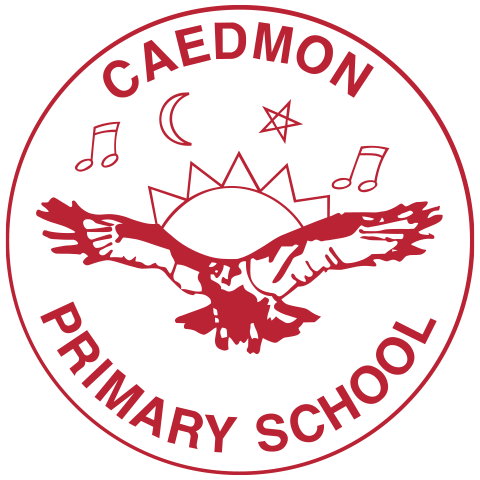Religious Education
Subject Leader: Mrs Inns
Subject Role
The Gateshead Agreed Syllabus for Religious Education (RE) guides RE teaching in local schools, focusing on understanding Christianity, Judaism, Islam, and Hinduism, while also exploring other worldviews. Its aims are to help pupils explore religious beliefs and practices, engage with life's big questions, and develop the skills to live in a diverse society.
RE at Caedmon
Based in such a diverse and multicultural area, it is essential for our children at Caedmon Community Primary School to be aware and informed of the different religions that surround them within the community and beyond.
Intent
The intent of Religious Education (RE) taught at Caedmon is to cultivate an environment where children develop a deep understanding of diverse religious beliefs and practices, fostering respect and tolerance for all. Our RE curriculum is designed to:
- Promote Inclusivity and Understanding: By exposing students to a variety of world religions, we aim to create a culture of respect and empathy, ensuring that children appreciate diversity and gain insight into their own beliefs as well as those of others.
- Encourage Critical Thinking: Through thoughtfully designed lessons, we intend to nurture critical thinking skills, enabling students to engage with deep philosophical questions and moral dilemmas. This encourages them to reflect on their own values and challenges their perceptions of the world.
- Enhance Spiritual, Moral, Social, and Cultural Development: Our RE curriculum is intertwined with our commitment to fostering the spiritual, moral, social, and cultural development of every child, enriching their overall educational experience and preparing them to be informed and responsible citizens.
Implementation
The RE curriculum at Caedmon is guided by the Gateshead Agreed Syllabus for Religious Education, developed to prepare and equip all pupils for life in contemporary Britain by enabling them to acquire a good level of religious literacy. Our lessons are supported by the United Learning curriculum and explore the teachings, beliefs and practices of Christianity, Islam, Judaism, Hindu Dharma and Buddhism, as well as non-religious worldviews such as Humanism.
Alongside providing children with opportunities to explore, engage and reflect on the key principles of these religions and worldviews, RE lessons are enhanced with artefact boxes and visits to local places of worship. School is regularly visited by speakers and visitors of different religious denominations and celebrations of festivals such as Christmas, Eid and Diwali take place annually. Pupils enjoy talking about their own religion and sharing their views with their peers.
Impact
The impact of our RE curriculum is evident in pupils’ attitudes, knowledge, and abilities within the subject. Pupils are provided with opportunities to: explore the teachings, beliefs and practices of the principal faiths in British society; engage with some of the big questions about our life in the world; reflect on the challenges presented by living in a diverse world. Students exhibit high levels of engagement and enthusiasm during RE lessons, participating actively in discussions and showing a keen interest in exploring diverse beliefs. Children at Caedmon approach sensitive topics related to faith with empathy and respect, demonstrating enhanced spiritual, moral, social, and cultural awareness.
Our children have described RE as being ‘important because it teaches you about different cultures.’ We celebrate our multicultural cohort at Caedmon Community Primary School and children enjoy talking about their different beliefs in school, saying, ‘I like telling my class about my culture and religion and helping the teacher!’
